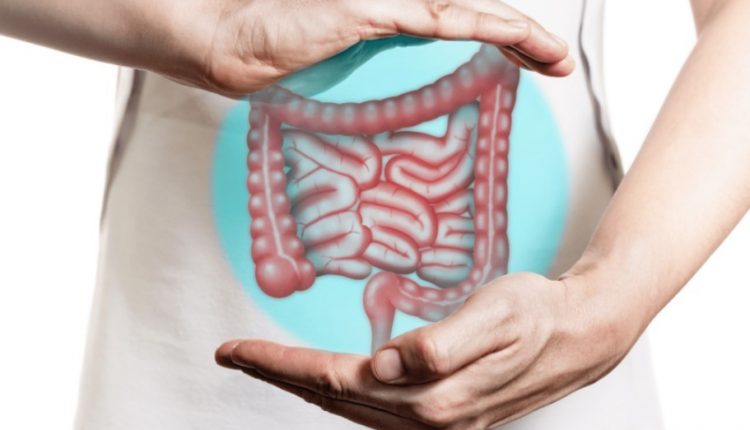
Diet and Irritable Bowel (IBS): some caveats to keep in mind
Irritable Bowel Syndrome (IBS) is a pathology caused by an important number of different factors: IBS can include gastrointestinal motility disorders, persistent low-grade inflammation of the gastrointestinal mucosa, visceral hypersensitivity, of the gastrointestinal microbiota, alterations of the microbiota, genetic predisposition and stress
But not only. Diet also affects IBS.
It is an element of life to be taken into account, even if only to avoid reaching the doctor’s diagnosis with a compromised clinical picture.
Food indications for irritable bowel: which diet to adopt with IBS?
Since many patients with irritable bowel syndrome report that the meal induces or increases the intensity of the symptoms, it seems that nutrition assumes an important role through chemical, osmotic, mechanical, neuroendocrine, bacterial processes linked to the fermentation of some food substances.
In an article recently published in Current Opinion in Gastoenterology, the authors took into consideration the research carried out on the subject to consider the effectiveness of the dietary approach in the therapeutic management of irritable bowel syndrome.
The first level of dietary intervention consists in avoiding food excesses and limiting the ingestion of substances considered potentially irritating (alcohol, hot spices, stimulants, etc.).
Food and fermentation in the intestine
One option that is of particular interest in the case of irritable bowel syndrome is the low-FODMAP (Fermentable Oligo-Di-Mono-Saccharides And Polyols) diet.
FODMAPs are short-chain carbohydrates that are incompletely absorbed in the gastrointestinal tract and favor the onset of fermentation phenomena in the intestine.
They are contained in many foods, in particular they are abundant in:
- wheat derivatives
- legumes
- milk and dairy products
- some fruits (pears, cherries, apricots, figs)
- some greens and vegetables (chicory, asparagus, broccoli, peppers).
IBS, the two-phase diet
This dietary approach (Low FODMAP diet) to combat irritable bowel consists of two phases:
- in the first part (4-6 weeks) foods containing FODMAPs are eliminated
- in the next phase (6-12 weeks) each food category is gradually reintroduced to identify individual intolerances and formulate a less restrictive diet.
Gluten and fermented foods
Although a gluten-free diet has a considerable following, in reality foods with gluten contain FODMAPs (e.g. fructans), therefore the benefit of this diet in some cases of irritable bowel syndrome is partially linked to the exclusion of FODMAPs and, unless it is a clear condition of intolerance to wheat (as for the so-called Non-Celiac Gluten Sensitivity), the exclusion of gluten should be reserved for celiac disease in consideration of the possible consequent associated nutritional deficiencies (vitamin D, vitamin B1, iron, zinc, magnesium).
Supplementing soluble fiber, particularly psyllium, in the diet has been found to be effective in treating irritable bowel symptoms.
Furthermore, interventions to modulate the intestinal microbiota through the use of probiotics represent a promising possibility that needs further confirmation for the identification of the appropriate bacterial strains, for the administration time and for the dosage.
Read Also
Emergency Live Even More…Live: Download The New Free App Of Your Newspaper For IOS And Android
How IBS Is Treated: Diet And Treatment Of Irritable Bowel Syndrome
Esophageal Achalasia, The Treatment Is Endoscopic
Oesophageal Achalasia: Symptoms And How To Treat It
Eosinophilic Oesophagitis: What It Is, What The Symptoms Are And How To Treat It
Gastroesophageal Reflux: Causes, Symptoms, Tests For Diagnosis And Treatment
Irritable Bowel Syndrome (IBS): A Benign Condition To Keep Under Control
Esophagogastroduodenoscopy (EGD Test): How It Is Performed
Symptoms And Remedies Of A Gastro-Oesophageal Reflux Cough
Gastro-Oesophageal Reflux Disease (GERD): Symptoms, Diagnosis And Treatment
What Is Esophagogastroduodenoscopy?
Indigestion Or Dyspepsia, What To Do? The New Guidelines
Dyspepsia: What It Is, Symptoms, Diagnosis And Treatment
Gastro-Oesophageal Reflux: Symptoms, Diagnosis And Treatment
Functional Dyspepsia: Symptoms, Tests And Treatment
Straight Leg Raise: The New Manoeuvre To Diagnose Gastro-Oesophageal Reflux Disease
Gastroenterology: Endoscopic Treatment For Gastro-Oesophageal Reflux
Oesophagitis: Symptoms, Diagnosis And Treatment
Esophageal Mobility: What Is The FLIP Exam?



